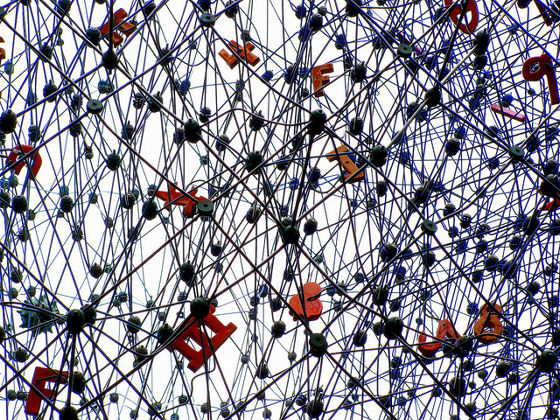The reason for the animals to go to bed is the result of the research 'To forget and organize part of memory'

By
Not only humans but also all animals on the earth have a phase of 'sleeping' in their life cycles. The reason why animals go to bed and the reason has not been elucidated yet, but recent studies have shown that animals are organizing their memories by forgetting part of their memories during the daytime through sleep. It has become
The Purpose of Sleep? To Forget, Scientists Say-The New York Times
https://www.nytimes.com/2017/02/02 science / sleep-memory-brain-forgetting.html
In the act of animals sleeping so far, the theory of reducing energy consumption, the theory of removing waste products in the brain, and creating a situation where they lie down and sleep, so that they can not be found in natural enemies The theory is said. Under such circumstances, in several articles based on long-standing studies, evidence has been found to suggest that the reason for animals to sleep is 'to forget some of the things they learned on that day.'
When the animal's brain learns, it is necessary to strengthen the synaptic connections that connect the neuronal neurons in the brain. By strengthening this connection, neurons can enhance their ability to communicate with other neurons and enhance their ability to memorize.

By
In a dissertation published by the biologists of the University of Wisconsin-Madison in 2003, Dr. Chiara Cirrelli and Dr. Giulio Tononi, synapse formation occurs explosively in the brain working in the daytime, and neural circuits in the brain Is a state of being flooded with 'noise', and it is necessary to make the necessary information emerge from noise by releasing some of the connections of the neural circuit by sleep. 'Synaptic Homeostasis Hypothesis : SHY was advocated.
Since then, research by both doctors and other scientists has found much indirect evidence to support SHY. For example, after a drug that stimulates brain cells extracted from the mouse brain is given to confirm the formation of synapses, it has been confirmed that the neurons themselves break the synapse connection. In addition, it is known that the brain waves coming out of the brain become weak during sleep, but the doctor has indicated that this phenomenon is due to the decrease in synapse.
In a study conducted by the researchers in 2013, changes in the brain during sleep have been investigated by microscopically checking synapses contained in the mouse brain. The research assistant, Luisa de Vivo, sliced the brains of the sleeping and awake mice very thinly and compared the size of the synapses present in them. As a result of observation of 6920 synapses, it has been found that the size of the synapse has been reduced by 18% in the brain of the sleeping mouse.
Also, in another paper , research was conducted focusing on a protein called ' Homer1a .' A study carried out by Dr. Graham H. Dealing of Johns Hopkins University has created a small 'window' in the head of the mouse to allow visual observation of the brain and then proteins on the surface of the brain. We are investigating changes by adding chemicals that cause light emission.
As a result, it was confirmed that the number of proteins decreased during sleep. This phenomenon is believed to support the weakening of the synapse, and it has been clarified that Homer1a is the trigger. Dr. Dealing et al. Conducted tests using mice that do not have the ability to genetically generate Homer1a, and found that during these mice's sleep, the loss of synapses found in normal mice was not confirmed. The study suggests that sleepiness causes Homer1a to be generated by neurons and Homer1a actually decreases synapse when it enters sleep.

By
In addition, it has been examined how this difference affects memory. The research team put the mouse in a small room where an electric shock was given when entering a specific place, and observed what kind of difference would occur. When the mouse enters the room, it learns that an electric shock can be given by entering a part. After that, they gave them an overnight sleep, and performed the same experiment the next day, but during sleep they had given some mice a drug that did not cause a decrease in synapse.
The next day, when I put the same mouse in the electric shock room again, I remembered that all the mice were in a state where their movements were set by remembering the memory of the previous day. However, when these mice were placed in another room without electric shock, a difference occurred. Normal mice showed interest in exploring the room, but mice that had been given drugs to inhibit synapse loss seem to have become in a state where their movements were hardened by memory of fear.
Dr. Dealing says that the results show that drug-fed mice are not able to organize their memories as 'shocks are only given in certain places in certain rooms.' This means that it is clear that the synaptic organization by sleep does not occur, and it has become clear that the memory is kept in an ambiguous state without being organized.

By
Through these studies, it has become clear that sleep has a certain effect on memory consolidation, but this area still needs further investigation. Although there are hypotheses that suggest that synapse reduction is a function of the 'body clock', and there is an effect by sleep, is it the only function to fix the memory or is it only one of many functions? This point is pointed out, and further research is needed in the future.
Although there are still many remaining parts, it has been confirmed that the brain performs a kind of 'reset' by fixing at least a part of daytime memory by sleep, and that it works to fix the memory. . This shows that sleep has a good effect on memory and learning, and it seems to be a basis that can not say that adequate sleep is essential for a healthy life.

By Kristen B
Related Posts:







